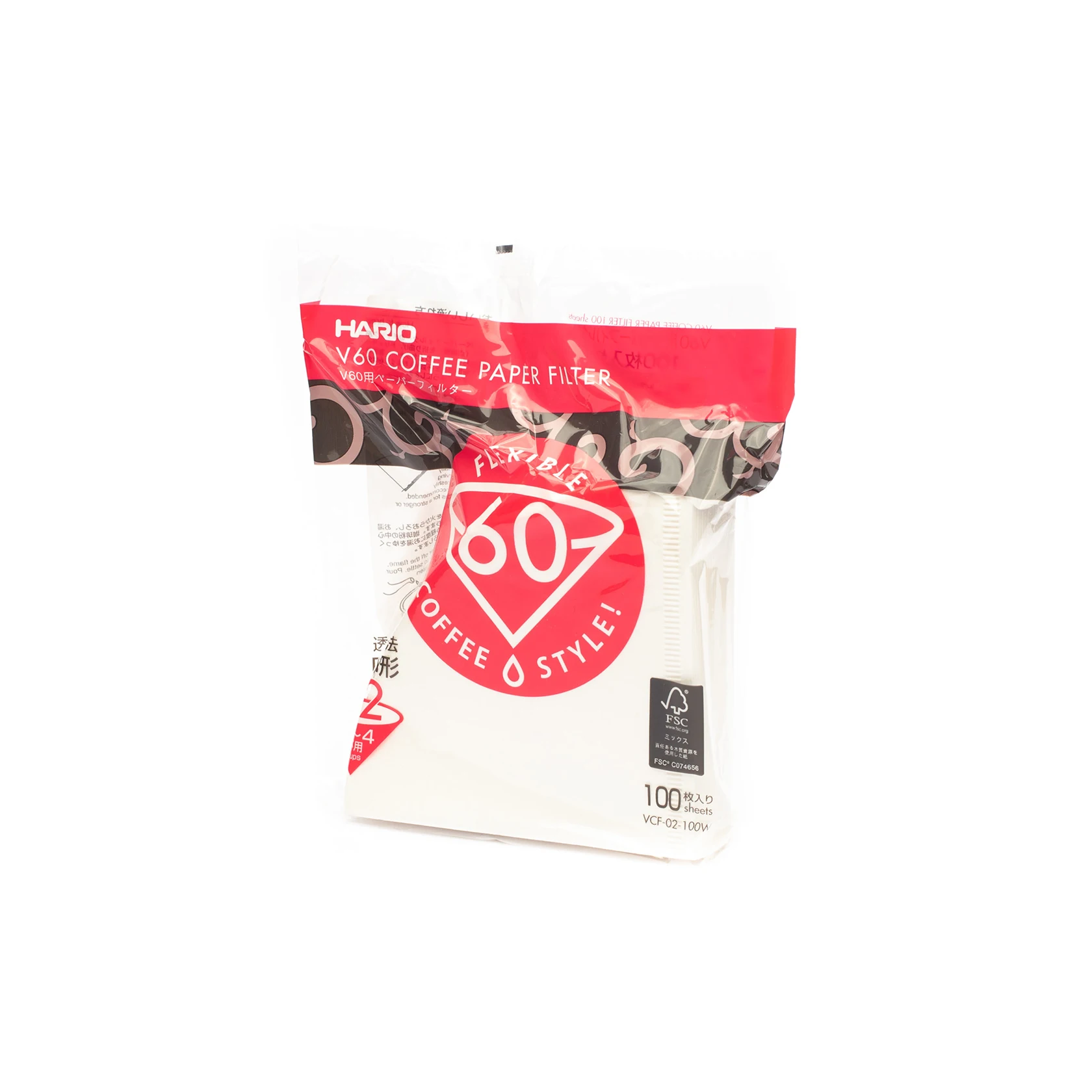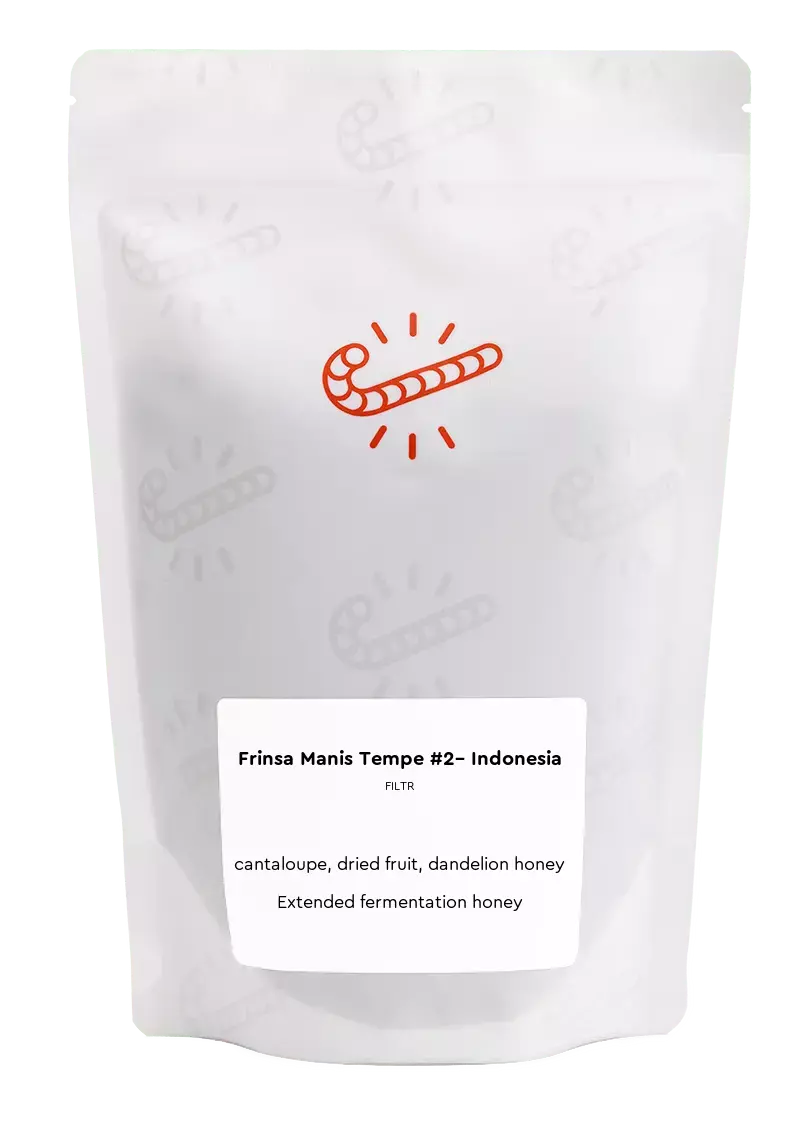
- Barista tools
- Paper filters
Hario V60 paper filters (100 pcs)
V60-1 / V60-2

cantaloupe, dried fruit, dandelion honey
Extended fermentation honey
If you are returning customer, click here to login
In fast checkout, but you can continue without account by clicking the button below.
Frinsa Estate – Honey Tempe #2 is a truly distinctive lot from West Java, Indonesia, showcasing an innovative approach to coffee processing. This experimental honey process begins with Lactobacillus fermentation, where freshly harvested cherries are submerged for 2–3 days to encourage controlled microbial activity. After pulping, the coffee is dried with its mucilage intact on raised beds for another 2–3 days. In a bold twist, Rhizopus—a fungus traditionally used in tempeh fermentation—is introduced, and the parchment is covered for an additional 36-hour fermentation. The result is a cup bursting with complex layers of watermelon candy, stonefruit, dried red fruits, and fudge, supported by a juicy texture and high funk.
This lot originates from Frinsa Estate, a forward-thinking coffee farm located in Weninggalih, West Java, at 1,400 meters above sea level. The estate spans over 100 hectares and is managed entirely on-site, from harvesting to dry milling. The farm cultivates a wide range of varietals—including Ateng Super, P88, Borbor, Andungsar, and Lini S-795—and separates lots meticulously by cultivar and picking date. In addition to their own farm, Frinsa collaborates with selected outgrowers through the Frinsa Collective, helping elevate the quality and traceability of Indonesian coffee.
Behind this remarkable project are Wildan Mustofa and Atieq Mustikaningtyas, a husband-and-wife team who have been redefining Indonesian specialty coffee since founding Frinsa Estate in 2010. While most local producers favor traditional wet-hulled methods, Wildan and Atieq have committed to washed and experimental processes that push the boundaries of flavor and innovation. Their work not only highlights Indonesia's potential on the global specialty scene but also contributes to local reforestation and sustainable water use—making every cup of Frinsa coffee as responsible as it is remarkable.